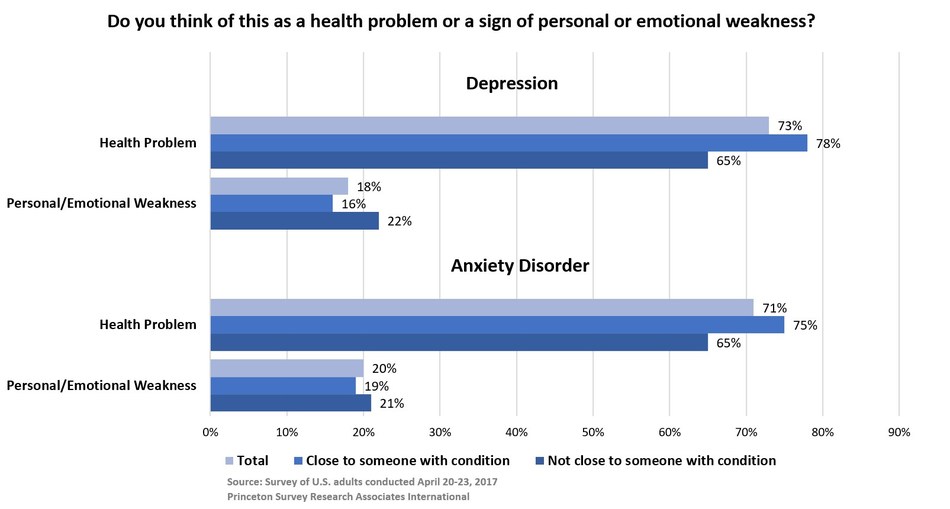By Princeton Survey Research Associates International, Special for USABR
In observance of Mental Health Month, PSRAI asked Americans about their views on depression and anxiety disorders. Seventy-three percent of adults say they view depression as a health problem while nearly one in five (18%) say they view it as a sign of personal or emotional weakness. This represents a drastic change from 1996, when a National Mental Health Association survey found more viewed depression as a personal or emotional weakness (54%) than a health problem (38%). A similar share of Americans today view anxiety disorders as a health problem (71%) rather than a sign of weakness (20%).
For full report visit: https://psrai.com/filesave/2017-05-01%20MentalHealth.pdf
Nearly two-thirds of Americans say they themselves, a family member, or a close friend have suffered from depression or an anxiety disorder. Those with this personal connection are more likely to recognize depression (78%) and anxiety disorders (75%) as health problems. Meanwhile only 65% of those with no connection to the conditions label each as health problems.
Views on depression and anxiety disorders differ across a variety of demographics. Women, non-Hispanic whites, college graduates, and those living in the western United States are among those most likely to recognize these conditions as health problems rather than weaknesses.
Americans have mixed opinions on whether the United States has made progress in getting people with depression or anxiety the help they need. Less than half (46%) say that at least some progress has been made in the past ten years, including just 10% who say a lot of progress has been made. Forty-three percent of respondents say that little to no progress has been made.
Methodology
The survey was conducted by Princeton Survey Research Associates International (PSRAI). Interviewing by landline and cellular telephones occurred April 20-23, 2017 among a random sample of 1,000 U.S. adults. Interviews were conducted in English and Spanish. Data have been weighted to parameters from the U.S. Census Bureau. The margin of error for results based on the complete set of weighted data is +/- 3.8 percentage points.
About PSRAI
PSRAI is an independent survey research firm dedicated to providing high-quality information to clients in the United States and around the world (www.psrai.com).
SOURCE Princeton Survey Research Associates International





